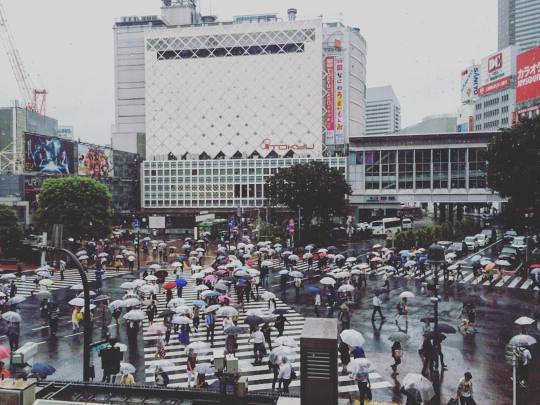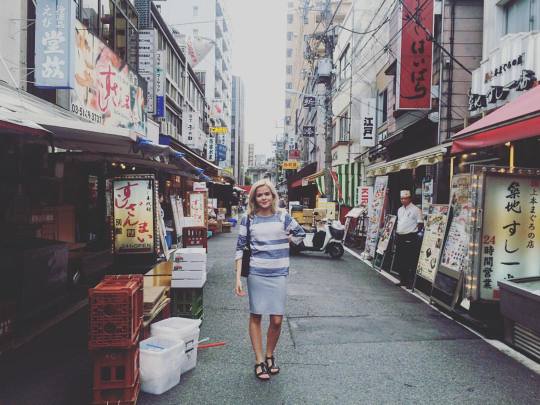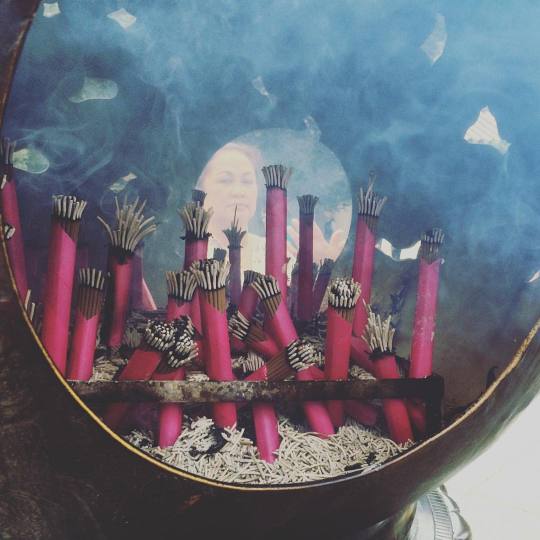Text
Favorite Podcasts
1. Brilliant Idiots
Charlamagne the God, the host of the Breakfast club and Uncommon Sense, one of the biggest hip hop personalities in USA, joined by comedian/actor Andrew “Young Hezzy” Schuzl. If you ever thought about the origin of the Kylie Jenner’s nick name “king” or the bar in the Drake’s Back to Back about going out of his lane, well, this is the source. It’s really mostly silliness and *dick talk*, but I laugh every time and both of the guys always put stuff happening in the American society in broader perspective.
2. Freakonomics Radio
Absolute opposite of the previously mentioned one. It’s very educational and interesting. The last episode I enjoyed deeply was “The truth about the gender pay gap”. Give it a try!
3. Serial
Of course, Serial. How could it not be. Sarah Koening is just amazing story-teller and I always wonder how she gets the information she gets. Like who calls the Taliban to ask them about the circumstances of captivation of one of American soldiers? That’s just genius. And I’m not even going to get into the first series, as I binge listened to it and loved every single episode. Damn it’s good!
4. American Life
The original podcast, from which Serial developed. One topic, three different stories each week. Usually, at least one of them makes me cry a little.
0 notes
Text
7 Effects of Sobriety
This year, my friend and I decided to detox for a month. It’s now almost done and I didn’t really plan to write about it, but I just came across Tobias Van Schneider’s article on the same topic and realized I actually also feel effects mentioned by him quite strongly.
To be fair, he is sober for about 17 months now, I however only passed the first one. Still, those are the 7 truths about staying sober.
1. Feeling so “vegan” about it
You know how when your friends start that glutten-free, vegan, raw or whatever diet, they feel the need to constantly talk about it? Since the 90% of all of my social interactions involve alcohol, at some point I told all of my friends.
2. Feeling the need to apologize
Several times now I cought myself telling my friends it’s only for a month and that I’m sorry about it. I don’t know why I feel this way.
3. Others feel uncomfortable around me
When someone invites me over for a diner or just wants to meet up in the evening, the alcohol is considered to be inseparatable part of the night. When I don’t drink, the other person doesn’t want to look tipsy and feels like I judge him/her, even if I don’t. Me not drinking makes the other person to be less relaxed.
4. Craving alcohol
I never really liked to drink and I hardly ever get drunk, but about three weeks into detox I begun feeling like I have so much stress in my life (exam period) and I need that ease that you get psychologically, even if you only go out for one drink.
5. Feeling bored and socially awkward
Just think of it as of watching TV in HD while your friends get the less sharp picture. While everyone around you feels pumped yet sloppy, you feel awkward. The jokes aren’t really funny but you’re the only one not laughing.
6. No savings
I’d say, even though it’s possible what Tobias says about saving money, in my experience I just eat more instead. Bars became restaurants, drinks became lunches.
7. Not pregnant, not having a problem
The idea of quitting alcohol is so strange, people tend to ask me wether I got pregnant or experienced problems with some sort of addiction in past. I seriously thought about just saying I came by car, but.. Well, everyone knows I don’t drive.
Conclusion
I decided to give it another month and count exactly the savings and times I declined alcohol to see some hard data. Contrary to Tobias, I however plan to get back to drinking at some point.
D.
#sobriety#sober#experiment#dry#not drinking#alcohol#alcohol free#tobias van schneider#experience#thoughts#effects of alcohol
0 notes
Text
Please, offend me.
Today’s topic is my stance on reactions on social media and the current trend of #letsbenice to each other. I totally get why would people support it, especially with all of the hate that internet produces, but at some point, it has to stop, otherwise it will become contra beneficial.
Lately, I’ve realized every time someone speaks up on social media in a different tone than the rest of the population, he becomes tagged as a “hater” etc. Most of the times it’s earned, but there are times, when the person says it nicely and points out things that the others neglect. Is he/she still a hater if he/she shares a different opinion? It almost seems like on internet, we expect everyone to agree with us.
Not so long ago, I’ve witnessed something I would definitely call the act of bravery when it comes to commenting. One of my Facebook friends have posted her pictures from the road trip to Scandinavia with a short story about how she slept on the floor, ate someone’s IKEA leftovers etc. etc.
While few of her friends commented with things such as “wow, that’s really cool story” and/or “you’re so lucky you managed to travel there”, the one guy decided to take things in his hands. He said: “What’s so cool about sleeping on someone’s floor and boasting about eating someone’s leftovers? Personally I don’t get why anyone would be jealous of this. If I were you, I would finally try to step up my game and pursue a better job than hipster shop assistant and I would save enough money to be able to buy my own food at least.” The others called him a hater, prick and others right away. But if you really think about it with a common logic, you have to come to the exactly same stance as this guy. C’mon, who really wants to enjoy his/her holiday starving and sleeping on the floors of gas station? And what in the world is so cool about it?
Okay, maybe you don’t agree with me and you just think it’s up to her what she enjoys. But I see it a bit differently. And because I do, I would also be called a hater. The problem with the current trend of “being nice to each other on social media” lies in the narrative, that you can only voice your opinion if it mirrors the opinion of a person who’s picture, article etc. you commented on. We only expect the engagement if it’s “nice”. Living in the bubble of the followers, thinking the way we do things is the ultimate way. But is it? I’d go as far as to call this a BS behavior.
If you share something about yourself with others, you really do it to get the reaction. And you should be prepared that life is not a bubble and that if you get a constructive criticism, it may actually help you realize something and become a better version of yourself. Maybe, if you see yourself through the glasses of someone who is more accomplished but at the same time cares for you enough to get your head out of your ass, you should be grateful. Maybe it will help you wake up one day and realize it no longer makes you happy to steal someone’s IKEA leftovers and make it seem cool on Facebook.
To conclude, constructive critique is normal. It’s needed in all aspects of our lives, social media included. The fact that we have followers doesn’t mean those are the people who will always agree with us and be “supportive” of all of our decisions. And by the way, what’s so supportive about not being real wit each other?
Think about it before you once again call a person with a different opinion a hater.
#social media#dialogue#offensive#offended#no offense#conversation#followers#social engagement#facebook#twitter#hater#constructive criticism
1 note
·
View note
Photo

Cray cray #tokyobound #shibuyacrossing (v místě Shibuya Crossing, Tokyo, Japan)
1 note
·
View note
Photo

Dear Misato, Thank you so much for your open doors, great hospitality, eagerness to go out every night, good mood while traveling and overall putting up with me. I am so greatful to you and your family. Hope to see you guys soon either in Europe or in Japan. Lots of love 💕🇯🇵 -D.
0 notes
Photo

Wedding in the rain #tokyobound #kamakura
1 note
·
View note
Photo

Karaoke last night with these guys 🙈😂 #amazing #selfie #karaoke
0 notes
Photo

In shinkanzen train on the way to Mt. Fuji. Staying with Misato's aunt for the night. I am so lucky and greatful.! #tokyobound
0 notes
Photo

Good thing about the jet lag that makes me sleep only 2 hours is I have the other 25 to explore. Wait wut? It also makes me slow and makes my brain melt. #tokyobound
0 notes
Photo

Saw Kabuki play today. It took 2h, it was really strange and I think the story made no sense. Oh, and everyone died. Loving Japan. #tokyobound (v místě Kabuki-za)
0 notes
Photo

When its raining in Tokyo #tokyobound #selfie #manga
2 notes
·
View notes
Photo

4am in Tokyo #tokyobound (v místě Tsukiji fish market)
1 note
·
View note
Photo

My morning begun at 3.30 am when we got to the Tsukiji market. We got to be among 120 people to see today's tuna auction. It was epic. Later on the market employee took us onto turret (segway with platform) and drove us around the market, which is an experience I'll never forget. It's 7 am now. I already got ramen noodles for breakfast and sea salt coffee in the local bar. 🎌👌#tokyobound (v místě Tsukiji fish market)
0 notes
Photo

If this isn't the most fucking epic place ever I don't know what is. #tokyobound
0 notes
Text
Fascination with Levi.
Approximately a year ago, this girl told me about the book she just finished reading and the impact it had on her. I am not the one to be impressed quickly, but for a long time I have been interested in books about the holocaust and the Second World War in general, so she caught my attention.
And I’m happy she did, because the book definitely made me think for a while and still does sometimes. It’s called If This Is a Man by Primo Levi. The author survived approximately a year in Auschwitz and another year on the way back to his homeland, Italy. The book – this one, and the second part – The Truce – which I’ve just finished- tell his story.
When you begin reading a book written by a witness of the holocaust, based on his own experience, you have some expectations. You feel like the author will contemplate about his life, will not believe in God because why would God create a world as absurd as the one the author had to live in. You believe the story will be quite clear, because history tells you who are the good and the bad guys. You will witness drastic scenes through the author’s eyes. You’ll read about Nazism, about Hitler. You’ll get the idea of what the people in the concentration camps thought of it and of what it was to be a Jew in that particular time. That’s all of the basic expectations you probably will have before you start reading this book.
And that’s why it’s fascinating. It doesn’t deliver any of it.
I’d love to say I found a moment when Levi asked himself why he ended up there, why was it bad to be a Jew. I’d love to say he didn’t believe God could exist in such a place. I’d love to see that cruelty of the situation got to him at some point that he struggled with the idea of life. I’d love to see that in the storyline, because that’s how I think I would feel and react. He however didn’t. In the book he simply described everyday life in the camp, good and bad ways of survival including materialistic things such as good shoes and clean shirts. He explained Jews were the biggest, however not the only group in the camp. Rather than a Jew, he called himself Italian. He did not use Jidis language, he was fluent in French. When he came across something absurd, he said “it was not to be understood”.
For Levi, all things in life were grey. Not good and bad, but depending on the situation. He did not have a problem describing a great German woman who lost her livehood due to her stance on Nazis regime. He clearly described some of his Jewish accomplices as robbers and cheaters. That’s why the book is so important nowadays. It did not try to shape the reality, it just described it in it’s truest colors. There was no “Nazism” paradigm, the enemies were simply Germans. He did not blame them. It was a reality of war and he just ended up on the receiving side. Knowing the history and how it’s taught I found this to be very surprising.
The story of Primo Levi made a particularly huge impact on me once I read more about his life. He came back to Italy months after the end of the war. He got married and returned back to society quite quickly. He wrote several books about the topic. And In 1987 he fell from the staircase of his apartment and died. Some say, he suffered from depression and that he died in Auschwitz forty years earlier. But some say it was an accident. He never left any goodbye note and he had plans for future. It was a postman, who just delivered Levi his mail, who witnessed the fall.
I don’t want to think of Levi as of a person, who committed a suicide. It just doesn’t make any sense to me. He survived the arguably worst period of time in our modern history and managed to stay sane. With such a passion for life, it’s hard to believe he would choose death.
But even if he did, I don’t want to think he died in Auschwitz forty years earlier. In my head I have so much respect for those survivors that I just can’t say the era still got them. It didn’t. Clearly, however it was, nobody managed to choose when it was Levi’s time to leave, except for Levi. In his survival, in the way he coped with it through the astonishing books he wrote he was the one telling his life story. From the beginning to the end.
Inspiring.
0 notes

